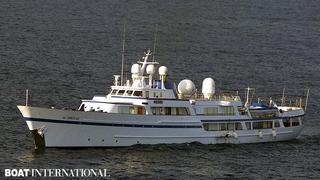

And hotels are accepting vulnerable homeless people off the street. General disregard for the common good and fulfillment of selfish interests is the reason. This occurs when people choose short-term needs rather than thinking about the big picture.
Put differently, all consumers are rivals competing for that unit of the good, and each person’s consumption subtracts from the total stock of the good available. Note that in order for a tragedy for the commons to occur the good must also be scarce, since a non-scarce good cannot be rivalrous in consumption; by definition there is always plenty to go around if it is not scarce (e.g. breathable air). A good that is non-excludable means that individual consumers are unable to prevent others from also consuming the good before you get your hands on a unit of it. In the United States, groundwater is the source of drinking water for about half the population, and roughly 50 billion gallons are used each day for agriculture. Because of this, groundwater supply is decreasing faster than it can be replenished. In drought-prone areas, the risk for water shortage is high and restrictions are often put in place to mitigate it.
Overall, Hardin argued against relying on conscience as a means of policing commons, suggesting that this favors selfish individuals – often known as free riders– over those who are more altruistic. On the other hand, Dieter Helm argues that these examples are context-specific and the tragedy of the commons “is not generally solved this way. If it were, the destruction of nature would not have occurred.” A common resource is a resource, such as water or pasture, that provides users with tangible benefits. Overuse of common resources often leads to economic problems, such as the tragedy of the commons. Before the English enclosures laws, customary arrangements among rural villagers and aristocratic lords included common access to most grazing and farm lands and managed their use and conservation.
Marketing
He postulated that if a herder put more than his allotted number of cattle on the common, overgrazing could result. For each additional animal, a herder could receive additional benefits, while the whole group shared the resulting damage to the commons. A critical aspect to understanding and overcoming of the tragedy of the commons is the role that institutional and technological factors play in the rivalry and excludability of a good. Human societies have evolved many varied methods of dividing up and enforcing exclusive rights to economic goods and natural resources, or punishing those who over-consume common resources over the course of history. The tragedy of the commons describes the conflict between short-term self interest and long-term common good.
This exceeds their share and takes up other people’s shares by depleting the resources. However, the self-interest of a few individuals challenges the common good due to their disregard for formal rules and shared social structure. Often, we think that governments need only to create clear property rights and then get out of the way.

Some experts, including Martin Chorzempa, who works at the Peterson Institute for International Economics, have made the connection directly between medical supply hoarding and the tragedy of the commons. Sustainable mindsets aid in being aware of the long-term impact and making mindful decisions. Hence the resource’s users must act collectively and agree to use them judiciously. Making the tragedy of the anticommons visible upends our intuitions about private property, which can no longer be seen as the end point of ownership.
Now, we can see the full spectrum of property, as shown in Figure 3. Privatizing a commons may cure the tragedy of wasteful overuse, but it may inadvertently spark the opposite. To describe this type of fragmentation, I coined the phrase tragedy of the anticommons . The term covers any setting in which too many people can block each other from creating or using a valuable resource.
They were emotionally upset because the reality of the cracker was coming through the free will of fellow citizens. Thousands of calls were made to policemen asking for a stop to firecrackers — many felt that lighting the crackers was a criminal act. The act of burdening common air further was almost like an act of violence. To say that we mutually agree to coercion is not to say that we are required to enjoy it, or even to pretend we enjoy it. But we accept compulsory taxes because we recognize that voluntary taxes would favor the conscienceless. We institute and support taxes and other coercive devices to escape the horror of the commons.
What are three main points of the tragedy of the commons?
Common-pool resources have been formally defined as resources that can yield only a finite flow of benefits over time (i.e. are exhaustible) and from whose utilization potential users can be excluded only at a considerable cost. Many scholars have contributed to the mathematical formalization of the tragedy of the commons, while sociologists and anthropologists have attempted to test it under different experimental or quasi-experimental conditions. As Huerta de Soto points out, the problem of the tragedy of the commons always appears when property rights are defined improperly. In the case of fractional reserve banking, bankers can infringe on property rights because it is not clearly defined who owns the deposit. The tragedy of the commons as a food basket is averted by private property, or something formally like it. We have not progressed as far with the solution of this problem as we have with the first.
The College of Earth and Mineral Sciences is committed to making its websites accessible to all users, and welcomes comments or suggestions on access improvements. Please send comments or suggestions on accessibility to the site editor. The site editor may also be contacted with questions or comments about this Open Educational Resource. Grand Banks fishery off the coast of Newfoundland was a means of livelihood for regional fishermen. Abundant in cod, the fishery allowed fishermen to catch as many cod as they desired without negatively impacting their population. Margaret E. Banyan Adjunct Assistant Professor, Southwest Florida Center for Public and Social Policy, Florida Gulf Coast University.
While this notion may seem implausible, it turns out there are many goods that are being produced unsustainably, endangering resources, or negatively impacting the environment. You have misunderstood free riders and the tragedy of the commons, and you are anti-immigrant. Free Rider Problem – a situation where people have an incentive to benefit from the efforts of other people. Government regulation can limit fish catches or size of fishnets to allow young fish to escape. For example, we may have a plot of land which could tolerate 20 animals grazing per year.
Research programs have concentrated on a number of motivational, strategic, and structural factors that might be conducive to management of commons. Hence Garrett Hardin should only be considered the father of the phrase “tragedy of the commons” but not of the concept itself. In fact, as shown in the passage above, 28 years earlier, the concept was fully and more systematically stated by Ludwig von Mises as one part of the more general problem of insufficiently defined property rights. And with Huerta de Soto’s analysis of fractional reserve banking, we find that the concept and term of the tragedy of the commons becomes a very important contribution to Austrian economics. Inaction costs us The environment is our habitat, and we make interventions in it for habitation — air conditioning, heating, sunshades, and now, air purifiers and air pollution masks. Dangers in the environment, such as pollution, are usually looked at as medical cases.
Many such commons exist around the world today, especially in traditional villages in the developing world, where generational rules dictate the protection of grazing lands, water resources , fields, and forests. In its first published version, the idea of the commons was a scenario mapped out in mathematical logic and concerning common pasture land in an English village. In his 1833 essay, William Forster Lloyd described the demise of a common pasture through overuse. Up to that time, many English villages had a patch of shared pasture land, collectively owned, on which villagers could let their livestock graze. At the time of Lloyd’s writing, however, many of these commons were being ruined through overgrazing .
- Many fish populations have become severely depleted due to overfishing.
- The potential overuse of a common-pool resource, which is a hybrid between a public good and a private good, can also influence individuals to act with their short-term interests in mind.
- Fisherfolk started competing with each other to catch increasingly larger amounts of cod, and by 1990, the population of codfish in the region was so low, the entire industry collapsed.
To couple the concept of freedom to breed with the belief that everyone born has an equal right to the commons is to lock the world into a tragic course of action. That morality is system-sensitive escaped the attention of most codifiers of ethics in the past. “Thou shalt not . . .” is the form of traditional ethical directives which make no allowance for particular circumstances. The laws of our society follow the pattern of ancient ethics, and therefore are poorly suited to governing a complex, crowded, changeable world. Our epicyclic solution is to augment statutory law with administrative law.
Recommended Articles
The commons dilemma stands as a model for a great variety of resource problems in society today, such as water, forests, fish, and non-renewable energy sources such as oil, gas, and coal. Hardin, who wrote a total of 350 articles and 27 books, describes in this early essay that common use will only work reasonably satisfactorily as long as the number of man and beast stay well below the carrying capacity of the land. The availability of resources and the amount of people depending on it should therefore be kept in balance. As a punch-line in the article he writes that a freedom to breed is intolerable.
I caution against judging folks like these as immoral actors, considering that the President’s cavalier attitudes may be directly contributing to this phenomenon. Still, this type of behavior will ultimately wreak havoc on our healthcare system, even if most Americans will live on. The country suffers when too many people think only about themselves and not about the greater good. Another limit for the credit expansion is set by public opinion, since it can influence the behavior of the central bank, inducing the central bank to keep the credit expansion in certain limits. Banks that infringe upon and abuse the property rights of their clients can make very good profits. In the typical example of cattle grazing, farmers or shepherds can divide the available land into sections and only allow grazing in one section.
Non-governmental solution
The entire living population of the village has to sustain the drought period with this remaining water source. Therefore, everyone has to be mindful and use the available water precariously. Even if one person uses it for unwanted purposes such as washing their cars and watering their lawns, it will reduce the quantity for the rest of the population. Thus limiting the quantity a person can draw from the water body can help maintain the source longer. If you are already a registered user of The Hindu and logged in, you may continue to engage with our articles. If you do not have an account please register and login to post comments.
Adam Smith did not assert that this was invariably true, and perhaps neither did any of his followers. If this assumption is correct it justifies the continuance of our present policy of laissez-faire in reproduction. If it is correct we can assume that men will control their individual fecundity so as to produce the optimum population. If the assumption is not correct, we need to reexamine our individual freedoms to see which ones are defensible. S theorem indicates that any system of property rights, by defining a framework for bargaining, will solve externality problems provided costs of transactions are negligible. In Governing the Commons , Elinor Ostrom analyzes many instances where societies have devised institutions other than private property and markets to secure or induce efficient resource use.
Some candidates may qualify for scholarships or financial aid, which will be credited against the Program Fee once eligibility is determined. Please refer to the Payment & Financial Aid page for further information.
The “tragedy” is not in the word’s conventional or theatric sense, nor a condemnation of the processes that lead to it. Similarly, Hardin’s use of “commons” has frequently been misunderstood, leading him to later remark that he should have titled his work “The Tragedy of the Unregulated Commons”. Elinor Ostrom was a political scientist whose work on resource management who coined the term tragedy of the commons made her the first woman to win the Nobel Prize in Economic Sciences. Market failure is a situation in which there is an inefficient allocation of goods and services in the free market. Elinor Ostrom was the first woman, and one of just two women, to win the Nobel prize in economics. We accept payments via credit card, wire transfer, Western Union, and bank loan.
It became one of the most cited academic papers ever published and also one of the most heavily criticized, particularly by anthropologists and historians. Industrial pollution is one of the consequences of operators ignoring their effect on the shared environment. Capitalism is an economic system whereby monetary goods are owned by individuals or companies, and where workers earn only wages. Our platform features short, highly produced videos of HBS faculty and guest business experts, interactive graphs and exercises, cold calls to keep you engaged, and opportunities to contribute to a vibrant online community.
In the 1960s, ecologist Garrett Hardin coined the term ‘the tragedy of the commons’, speaking of how ‘commons’ such as the sea, meadows, or pieces of land get degraded. This is because no one particular section of society or individual takes responsibility. The issue with environmental degradation is that we have historically felt we can afford to wash our hands of our commons, that is, our environmental issues. We can no longer afford to do so, as the tragedy of the commons — from being one that society experienced in some distant and non-corporeal form — has become toxically pointed towards each of us through the very air we breathe. I would like to focus your attention not on the subject of the article but on the kind of conclusion they reached, namely that there is no technical solution to the problem.
